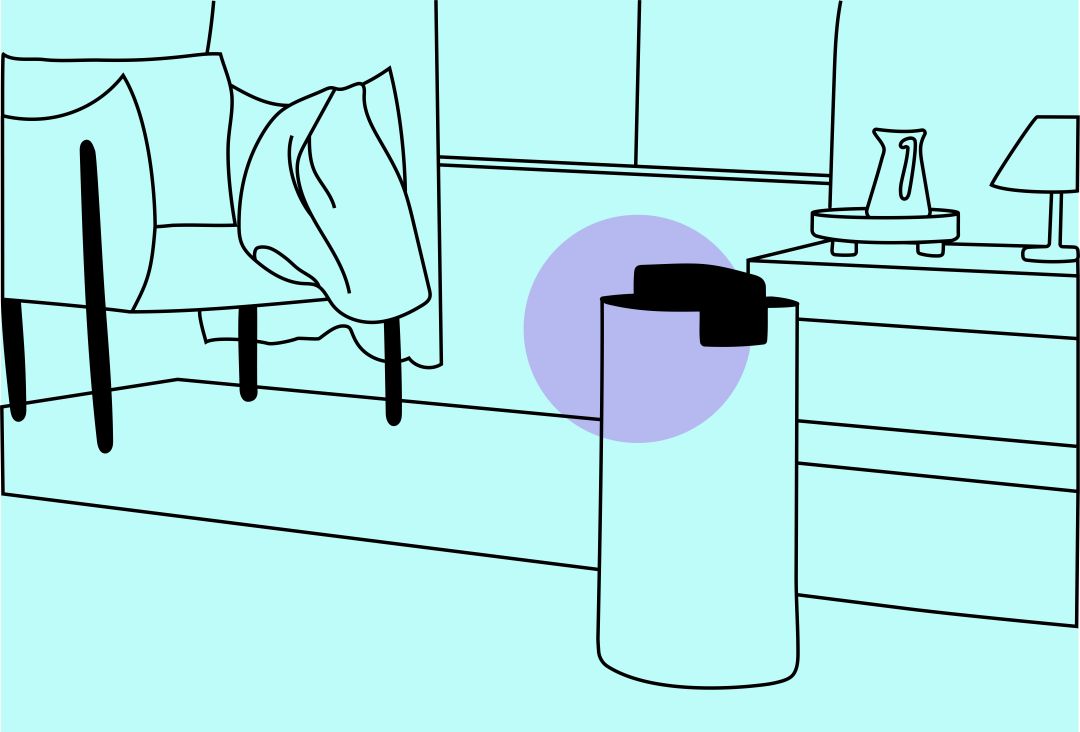Can We Keep Our Home and Office Air Clean During Covid-19?

Image: Kari Perrin
"Is it allergies or Covid-19?"
That's the question on the minds of many who experience a slight cough, runny nose or any feeling of illness right now. One of the ways to help prevent both from developing in severity is proper ventilation within indoor spaces—i.e., your home or office. Several allergens and viruses travel through the air and, without proper ventilation, can contribute to your illness.
Dr. Geetika Sabharwal at Allergy Associates of Bradenton shares her tips on how to keep your air quality fresh and clean indoors, plus ways you can keep respiratory symptoms at bay.
What are the most common indoor allergens people suffer with?
"The most common are dust mites, pet dander and mold, but sometimes cockroaches and rodents," says Sabharwal. "We always test patients and control the measures of allergens they are exposed to in their environment."
What is the best way to keep air sanitized?
Dr. Sabharwal recommends a HEPA, or high-efficiency particulate air fan/filtration system. These systems can be installed into your regular central air conditioning system or central vacuum if you have one in your house. According to the Centers for Disease Control, most respiratory droplets and allergen particles are less than five micrometers in size. HEPA filters are at least 99.97 percent efficient at capturing particles 0.3 micrometers in size.
"Central vacuum systems also help limit exposure to indoor allergens that can cause symptoms," Sabharwal adds.
Can viruses, like Covid-19, travel through the air in your home?
"Bacteria and viruses both have the potential to travel through the air, which is why proper circulation and crowd control are important," says Sabharwal. "Ventilation, like a properly working AC system and dehumidifier, which extracts moisture from the air, are helpful in reducing both."
Sabharwal says research shows the more stagnant the air, the more likely it will spread disease. So to reduce infectious disease, utilizing a dehumidifier (especially in Florida, where the outdoor air is already humid) will help keep air dry and moving.
What about the air in office buildings?
Sabharwal says that HVAC systems, should be serviced regularly to ensure they are providing proper air flow and are clean. The CDC also requires healthcare facilities to have ventilation requirements in place to control infectious diseases. Non-healthcare facilities, like businesses and schools, should follow state and local building codes and applicable guidelines as far as maintenance.
If you're still uncertain about the air quality of your office, bringing your own medical-grade air filters to place in AC units can help. Keep an air purifier or dehumidifier near your desk, and open windows if you have some nearby and are not allergic to an outdoor allergen.
What are other measures we can take to keep indoor air clean?
"HEPA filters alone will not protect your from viruses like Covid-19," says Sabharwal. "Washing bedding, curtains, blankets and furniture coverings frequently in hot water will help kills dust mites and other allergens." Putting a mattress cover specifically for allergens over your mattress will help, too.
Change air filters once a month, and clean the vents of air purifiers and dehumidifiers every two to four weeks.
Can these measures also apply to protecting your respiratory health against red tide?
Sabharwal says if you live near the ocean and experience respiratory symptoms like cough, shortness of breath and runny or itchy nose, you could be experiencing the effects of red tide. The overgrowth of the algae Karenia brevis can kill fish and marine life, although there need to be more studies done to determine its long-lasting effects on humans.
Anecdotally, Sabharwal's patients with asthma have reported an increase in symptoms from red tide this season. She says same precautions against allergens, like using a HEPA filter and dehumidifiers, can help.
Any other tips for improving respiratory health?
Keep pets washed, groomed and out of bedrooms as much as possible to reduce pet dander.
Wash bedding once a week with hot water and using a dryer.
Vacuum regularly to get rid of dust and allergens trapped in carpets, which cause the most accumulation. Vacuum couches and upholstered furniture, and dust curtains.
If you have pollen allergies, avoid opening windows during heights of seasonal blooms, such as oak or grass. The carbon dioxide in the environment will affect how much pollen is getting in your home and into your lungs.
Keep air dry in areas that develop moisture in the home, such as the bathroom and shower, to avoid mold build-up. Mold allergies can be hard to treat in patients who already have asthma.
Finally, "keep with CDC guidelines to help prevent Covid-19, such as hand washing, social distancing and mask-wearing when you can," says Sabharwal. "Proper ventilation alone will not prevent the virus from spreading."


